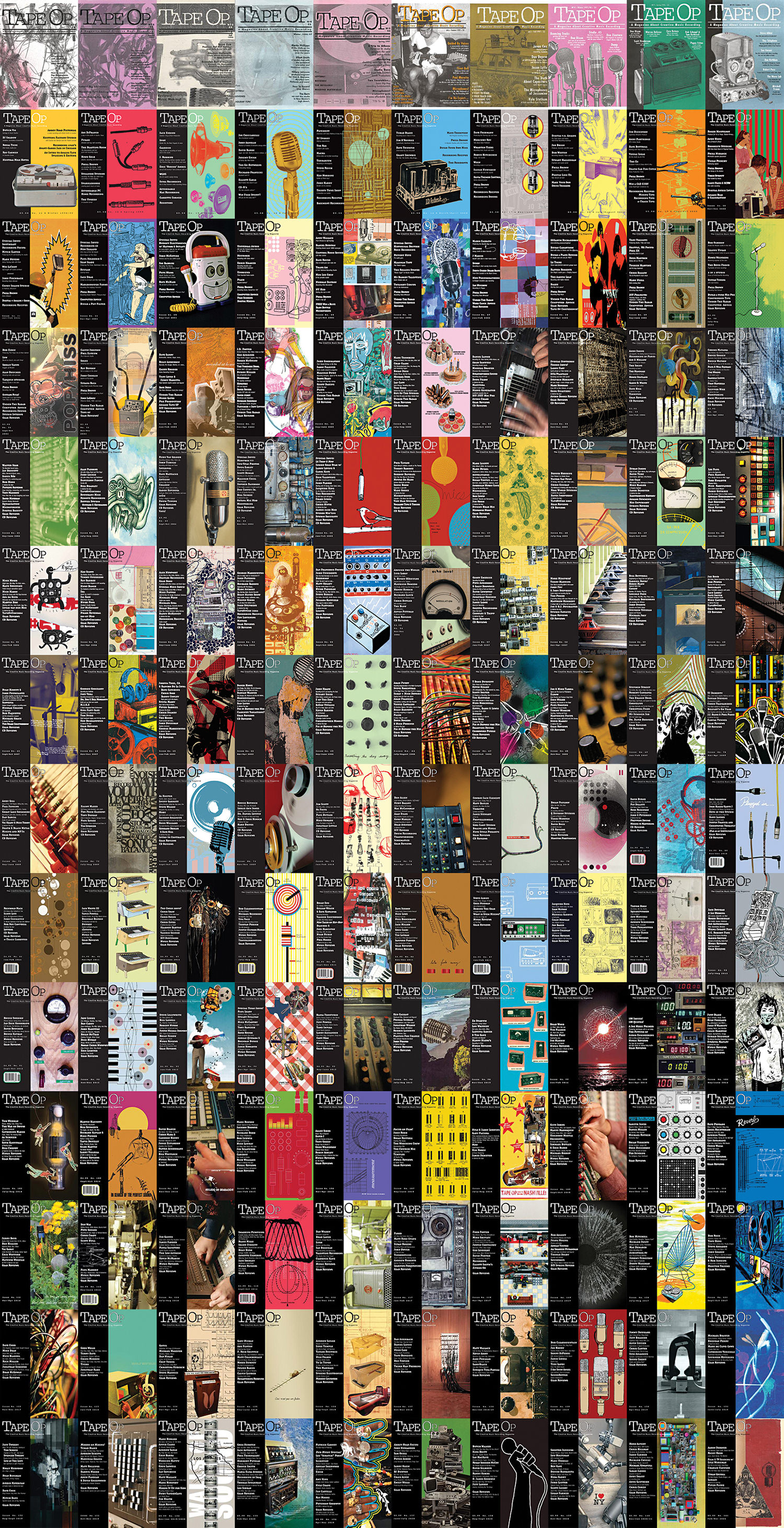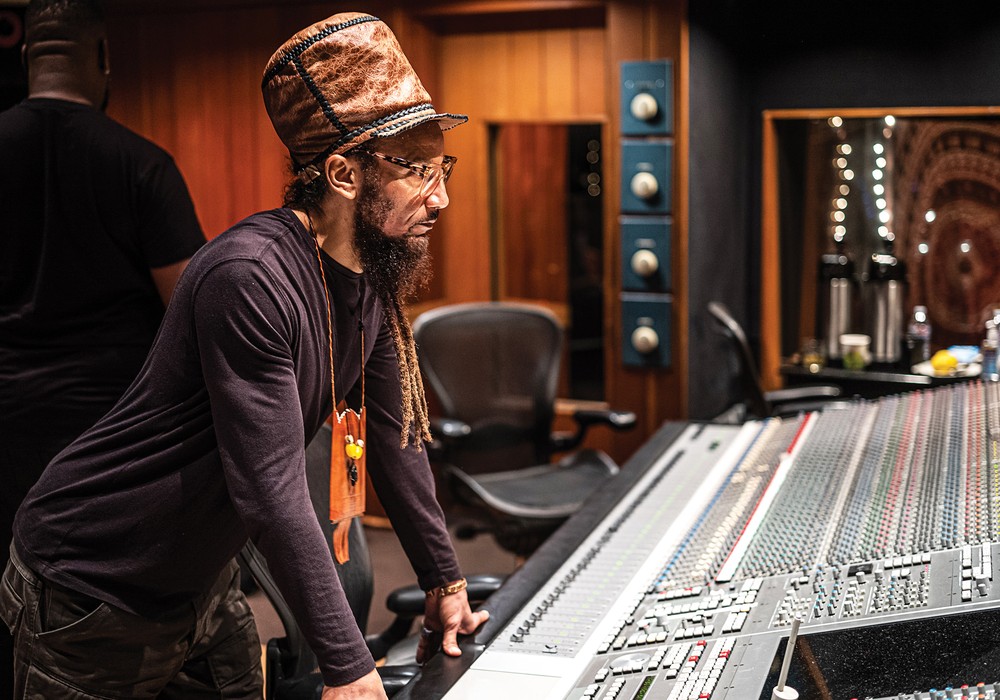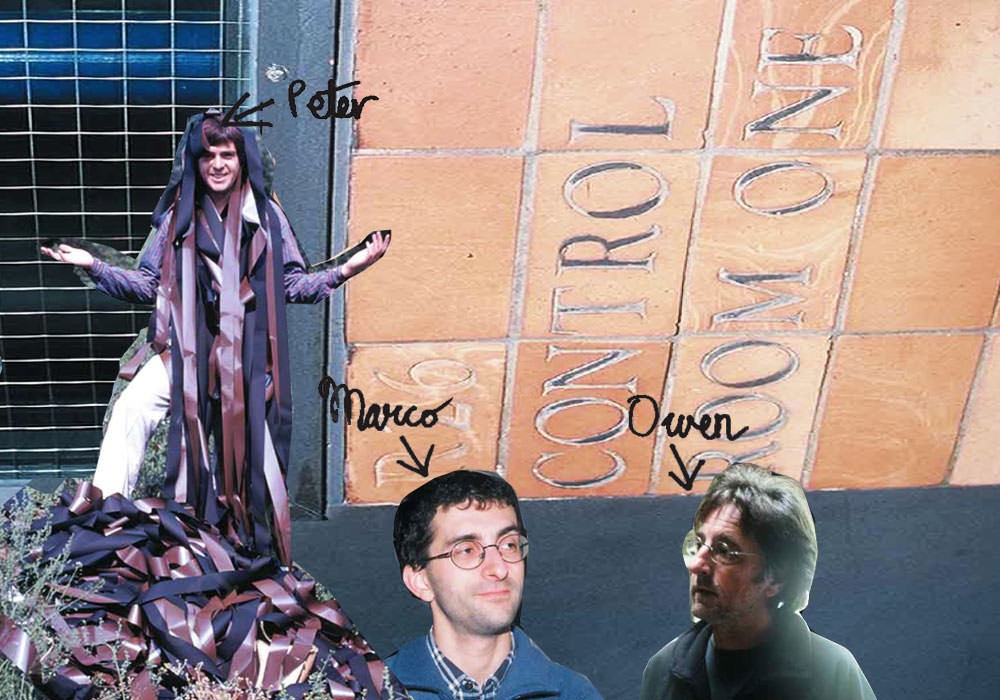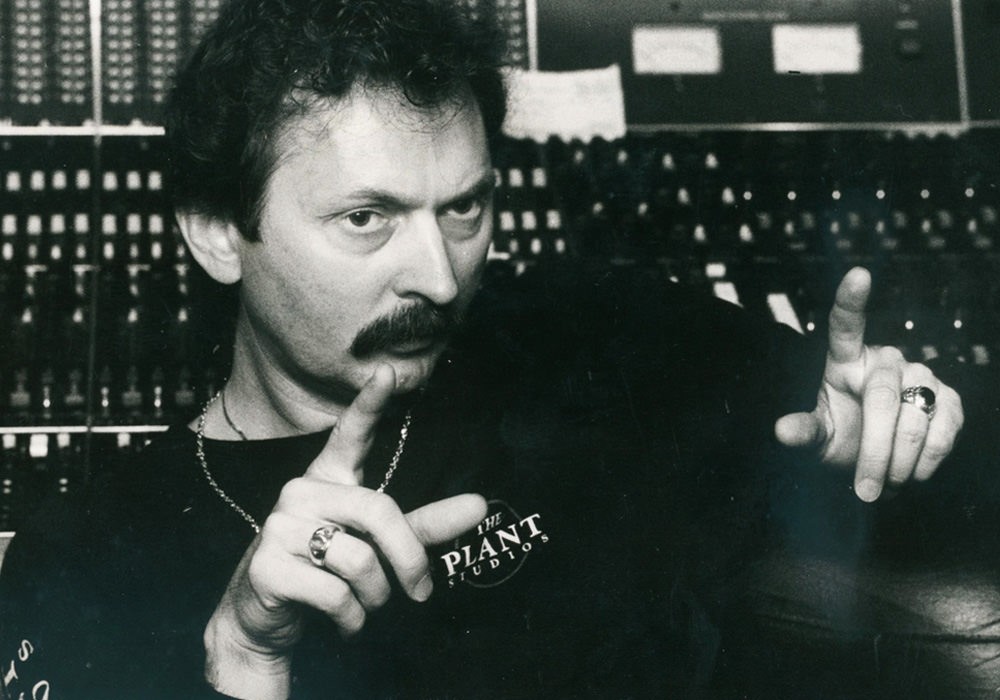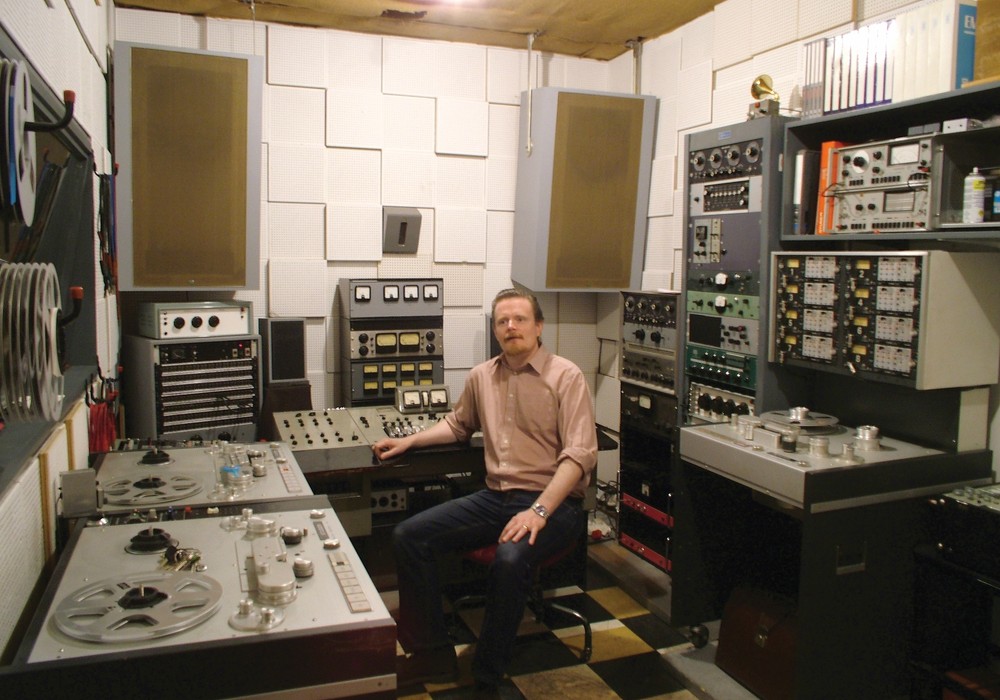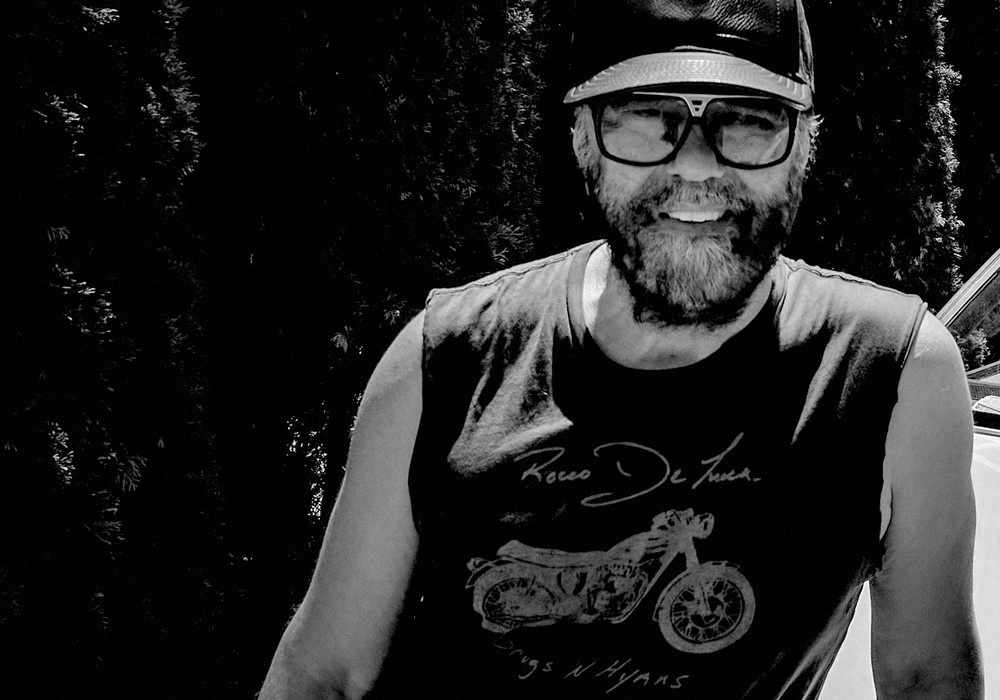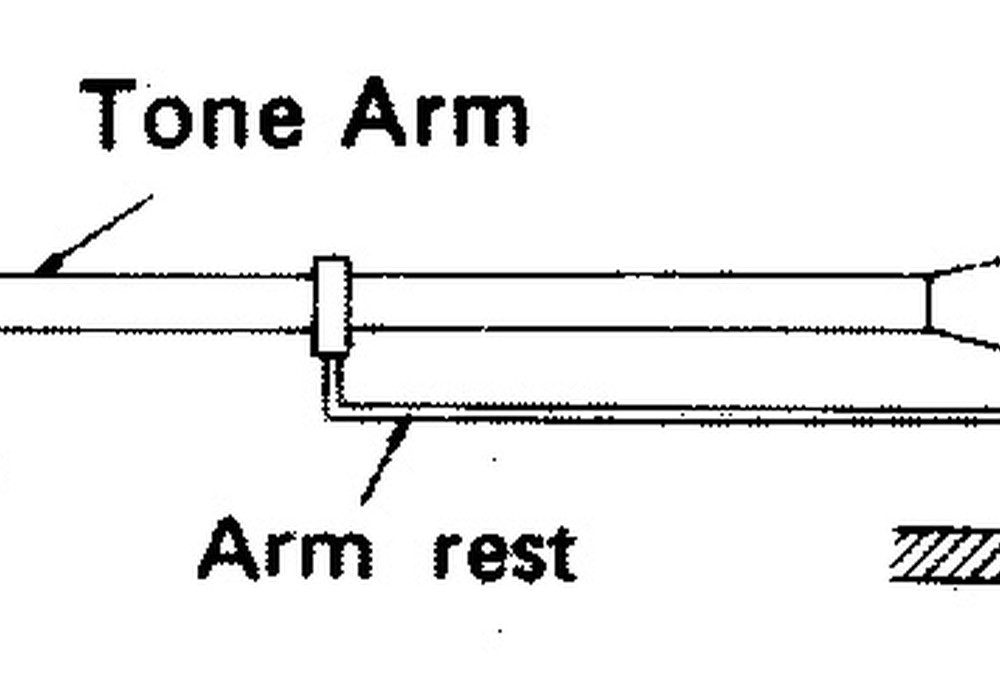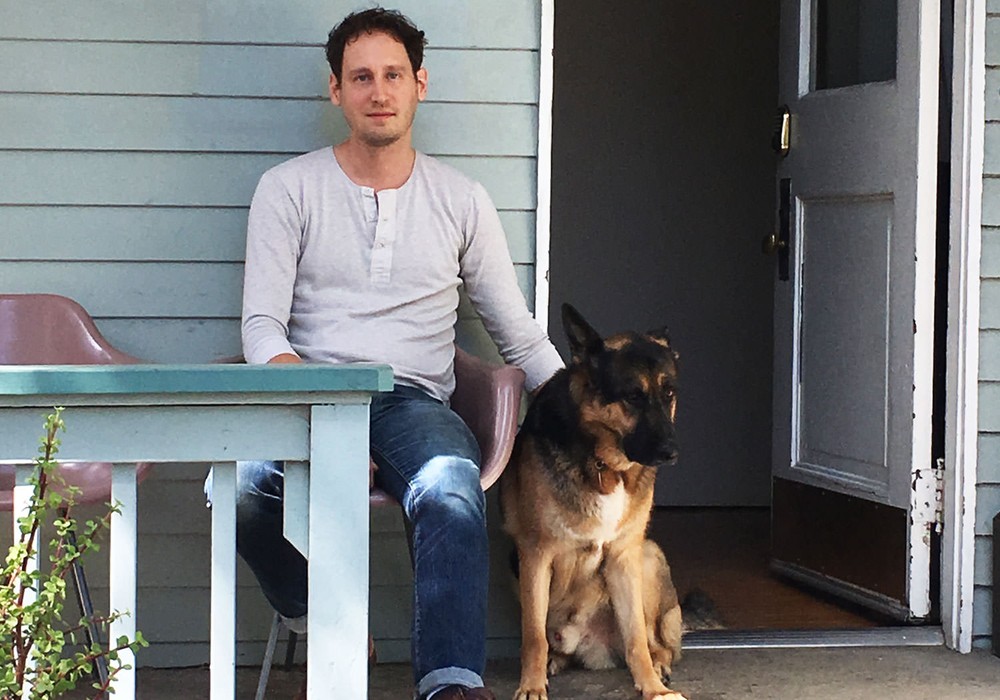Keith Lewis is Qmillion, a musician, engineer, producer, composer, and mixer based in L.A. He’s been busier than ever during the last decade with Robert Glasper (and his Experiment and Trio combos), as well as many related artists and projects. Qmillion’s mixes and tracking always sound amazing to me, so I had to drop a line and learn about his past, and how he thinks about the art of recording.
You grew up in Minneapolis?
Yeah, I did. I went to the University of Minnesota. I left Minneapolis in ‘92.
You were working with Jesse Johnson, doing production, engineering, and performing.
Exactly. For me, learning how to play music and the curiosity of electronics, like taking apart my dad’s stereos, happened at the same time. I remember borrowing one of the little, flat cassette recorders. We’d tape off the speakers at home from the radio if one of my favorite songs came on. Then we’d hook that up to my dad’s system so we could hear it; just experimenting.
Did you go to school for recording or music?
I was at the university for computer science, and I was working at Honeywell’s undersea division. I had a scholarship there. When I got into Jesse’s band, playing keyboards, I gave it all up. My dad was furious! I was like, “School was the fallback for music. This tour is right here, right now.”
Did that lead to studio work with Jesse?
Yeah. On his albums he did most of the music by himself, but every once in a while he would have somebody come in and do parts that weren’t his forte. He had me come in and play string pads. He’s crazy on the keyboards. For his style, he’s sick with it. He didn’t need me to do any of that. But I would come in and do other parts. That’s when our relationship started to grow in the studio. He had a big [Soundcraft] TS24 48-channel board with two [tape] machines, but in a room that wasn’t that big. There wasn’t always an engineer. I was learning, and sometimes when it was time to mix a record he’d have an engineer come in and mix
and I’d watch them. Then we started writing music together.
And producing other artists, right?
Yeah. Our biggest song was “Nights Like This” for After 7. That moment that song ended up having in the movie, The Five Heartbeats, is still priceless.
We also had songs in White Men Can’t Jump. It was a pretty good run.
What led to moving to L.A.?
In Minneapolis it was three camps. It was Jesse’s camp, Prince’s camp, and it was Terry and Jimmy’s camp [Jimmy Jam and Terry Lewis]. I worked with Terry and Jimmy when I worked with The Time with Jesse.
But if I went there, it would cut off the Jesse thing. And if I went with Prince… People weren’t collaborating back then the way they are now. Everything was secretive. Everything was competitive. It’s a whole new era now that we’re into. It’s amazing how it’s changed.
Were you looking for a different environment?
Yeah. Music was changing at the time, and the Minneapolis sound wasn’t a thing no more. Some of the records me and Jesse were doing were hip-hop records, but it was a combination of hip-hop and R&B hooks, which is now the standard. Back then people asked, “Why is there singing on it? This isn’t underground.”
It’d be hard for someone to understand if they hadn’t lived through that era!
Right. Now every rapper sings. I came to L.A. so I could do my own thing and not be in somebody else’s camp. Me and Jesse are still cool; I talked to him last week. I needed to stretch out to make my own thing happen. There were enough people in Minneapolis doing what they were doing, but the business was out here.
What was some of the early L.A. work you took on?
When I first came out, I was working with Oliver Leiber. Because he was from Minneapolis, and he had worked with Paula [Abdul], Ta Mara & the Seen, and so on. I started a couple records with him, and both of those records got dropped. I produced “Grazin’ in the Grass” for George Howard, then I signed a publishing deal with Interscope, and I started shopping songs. I produced half of Shello [The Homegirl] for Giant Records; the other half was produced by DJ Quik. I was doing a lot of hip-hop. Underground rappers; nothing that popped super...
